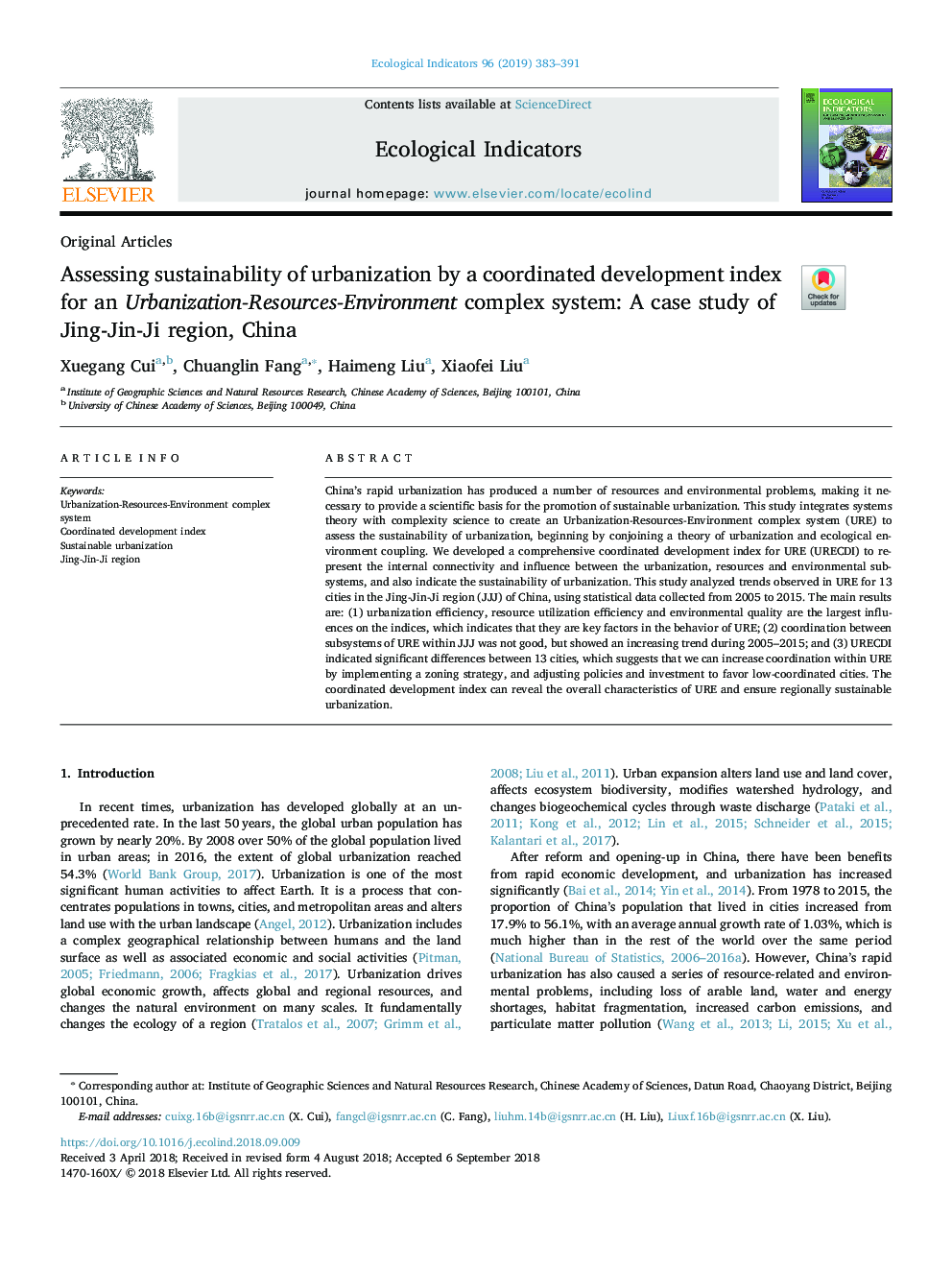| Article ID | Journal | Published Year | Pages | File Type |
|---|---|---|---|---|
| 10144257 | Ecological Indicators | 2019 | 9 Pages |
Abstract
China's rapid urbanization has produced a number of resources and environmental problems, making it necessary to provide a scientific basis for the promotion of sustainable urbanization. This study integrates systems theory with complexity science to create an Urbanization-Resources-Environment complex system (URE) to assess the sustainability of urbanization, beginning by conjoining a theory of urbanization and ecological environment coupling. We developed a comprehensive coordinated development index for URE (URECDI) to represent the internal connectivity and influence between the urbanization, resources and environmental subsystems, and also indicate the sustainability of urbanization. This study analyzed trends observed in URE for 13 cities in the Jing-Jin-Ji region (JJJ) of China, using statistical data collected from 2005 to 2015. The main results are: (1) urbanization efficiency, resource utilization efficiency and environmental quality are the largest influences on the indices, which indicates that they are key factors in the behavior of URE; (2) coordination between subsystems of URE within JJJ was not good, but showed an increasing trend during 2005-2015; and (3) URECDI indicated significant differences between 13 cities, which suggests that we can increase coordination within URE by implementing a zoning strategy, and adjusting policies and investment to favor low-coordinated cities. The coordinated development index can reveal the overall characteristics of URE and ensure regionally sustainable urbanization.
Related Topics
Life Sciences
Agricultural and Biological Sciences
Ecology, Evolution, Behavior and Systematics
Authors
Xuegang Cui, Chuanglin Fang, Haimeng Liu, Xiaofei Liu,
